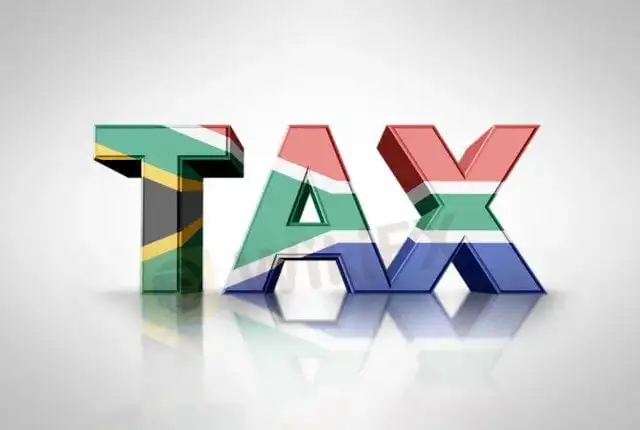简体中文
繁體中文
English
Pусский
日本語
ภาษาไทย
Tiếng Việt
Bahasa Indonesia
Español
हिन्दी
Filippiiniläinen
Français
Deutsch
Português
Türkçe
한국어
العربية
Investors in South Africa Face Hurdles Due to the Taxation of Digital Assets
Abstract:A new tax and financial legislation for digital assets is being developed in South Africa. According to Joon Chong, a lawyer at the South African law firm Webber Wentzel, these new regulations might present investors in digital assets with enormous tax reporting issues.
The challenge would arise from describing the legal meaning the nation is assigning to the asset class, Chong said in an opinion post she penned for top South African business and financial news source Fin24.

Digital assets are anything that is kept on a distributed ledger in a decentralized network, according to the South African Revenue Service (SARS). This includes both money and non-currency assets like NFTs, security tokens and utility tokens. They fall under the Income Tax Act 58 of 1962 (ITA) as a result of this definition, and as a result, their sale will be subject to the “ordinary income tax procedures for financial instruments such as equity shares or unit trusts.”
These regulations classify assets as either capital assets or assets that generate income. This raises the issue of which classification any disposition of a digital asset falls under and if it would be considered a taxable event. Investors in digital assets, however, may find it challenging to demonstrate that their gains or losses from sales are of a capital character because
The crucial factor in evaluating whether profits or losses from the sale of crypto assets are of a capital or income type is the taxpayer's purpose. Due to the high risk and volatility character of this asset class, taxpayers must work harder to demonstrate that their profits or losses are capital in nature, she added.
South Africans should get ready for the new system, Chong said, since the South African Reserve Bank (SARB) has set a 12- to 18-month deadline for the completion of its new AML/CFT and taxation framework for digital assets.
South Africa's battles with nefarious players in the market for digital assets
The string of high-profile digital asset frauds that have been reported in South Africa are substantially to blame for the country's decision to regulate digital assets. The $3.8 billion Africrypt scam is only one example of the country's market-moving fraud cases.
South Africa hopes to introduce a central bank digital currency (CBDC) in addition to the proposed legislation to promote the secure use of digital currencies. An inter-bank operability test was one of several rounds of testing the CBDC underwent by the SARB.
Disclaimer:
The views in this article only represent the author's personal views, and do not constitute investment advice on this platform. This platform does not guarantee the accuracy, completeness and timeliness of the information in the article, and will not be liable for any loss caused by the use of or reliance on the information in the article.
Read more

Trading is an Endless Journey
Every trader dreams of quick success, but rushing the process often leads to mistakes. It’s easy to get swept up in the excitement of winning trades or discouraged by unexpected losses. The truth is, mastering the emotional side of trading can be even more important than understanding market analysis or strategies.

How to Know if the Market is Correcting or Reversing?
In trading, distinguishing between a market correction and a market reversal is crucial for making sound decisions. Misjudging one for the other can lead to missed opportunities or significant losses. While both involve price movements, their causes, duration, and implications differ substantially. Understanding these differences can help traders improve their strategies and adapt to market conditions effectively.

Empowering the Next Generation in Finance with WikiFX: Gen Z’s Investment Journey
With a steadfast commitment to fostering sustainable financial literacy and providing clear, strategic guidance to the next generation, WikiFX has collaborated with Van Lang University and Hoa Sen University to host an exclusive series of financial education workshops. This marks a pioneering initiative by WikiFX in Vietnam, designed not only to deliver foundational knowledge but also to instill a sense of responsibility and cultivate prudent financial decision-making among aspiring young traders.

What Impact Does Japan’s Positive Output Gap Have on the Yen?
The Japanese government has announced that, due to a tight labor market, the country’s economic output is expected to return to full capacity in the next fiscal year for the first time in seven years.
WikiFX Broker
Latest News
Two Californians Indicted for $22 Million Crypto and NFT Fraud
Macro Markets: Is It Worth Your Investment?
Trading is an Endless Journey
WikiFX Review: Is Ultima Markets Legit?
Colorado Duo Accused of $8M Investment Fraud Scheme
What Impact Does Japan’s Positive Output Gap Have on the Yen?
RM62k Lost Investment Scam After Joining XRP Community Malaysia on Telegram
Victims of Financial Fraud in France Suffer Annual Losses of at Least €500 Million
Malaysia Pioneers Zakat Payments with Cryptocurrencies
FCA's Warning to Brokers: Don't Ignore!
Currency Calculator


